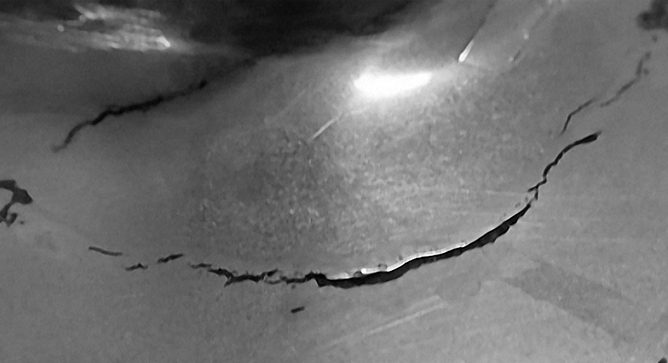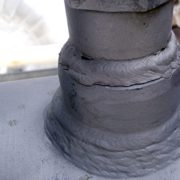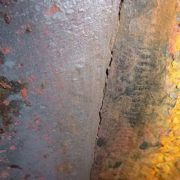News & Views, Volume 44 | Failed Grade 91 “Soft” Pipe Bend – A Case Study – Failure Occurred With Less Than 35,000 Operating Hours
By: Kane Riggenbach and Tony Studer
 Grade 91 steel is widely used in tubes, headers and piping of superheaters and reheaters because of its higher strength at elevated temperature compared to low alloy steels such as Grade 22. The improved strength is a result of a tempered martensitic microstructure with a fine distribution of carbonitride precipitates. This microstructure is achieved through careful heat treatment: normalizing, tempering, and subsequent forming and post weld heat treatments. If these heat treatments are not performed properly, then the strength of the material essentially reverts to that of a low alloy steel like Grade 22, and is usually accompanied by a reduction in hardness, leaving the Grade 91 material in a so-called “soft” condition.
Grade 91 steel is widely used in tubes, headers and piping of superheaters and reheaters because of its higher strength at elevated temperature compared to low alloy steels such as Grade 22. The improved strength is a result of a tempered martensitic microstructure with a fine distribution of carbonitride precipitates. This microstructure is achieved through careful heat treatment: normalizing, tempering, and subsequent forming and post weld heat treatments. If these heat treatments are not performed properly, then the strength of the material essentially reverts to that of a low alloy steel like Grade 22, and is usually accompanied by a reduction in hardness, leaving the Grade 91 material in a so-called “soft” condition.
This article summarizes a case study for Grade 91 material in the “soft” condition, which was responsible for a steam leak after only 5 years of operation, illustrating how this material condition can result in forced shutdowns and safety hazards. It is because of these consequences that it is recommended to have a Grade 91 life management program to understand if your plant may have such vulnerability.
This case study provides general background to the steam leak and describes the subsequent metallurgical evaluations performed to verify that mal-heat treatment of the Grade 91 steel was the root cause of the leak. A follow-on article (the next issue, Volume 45, of News and Views) will provide additional insight into local stresses and analytical prediction of such failures, as well as highlighting key aspects of a Grade 91 life management program. Suffice it to say if this plant had implemented such a program, the vulnerability of the affected spool would have been identified and mitigating actions could have been taken to avoid the leak.





